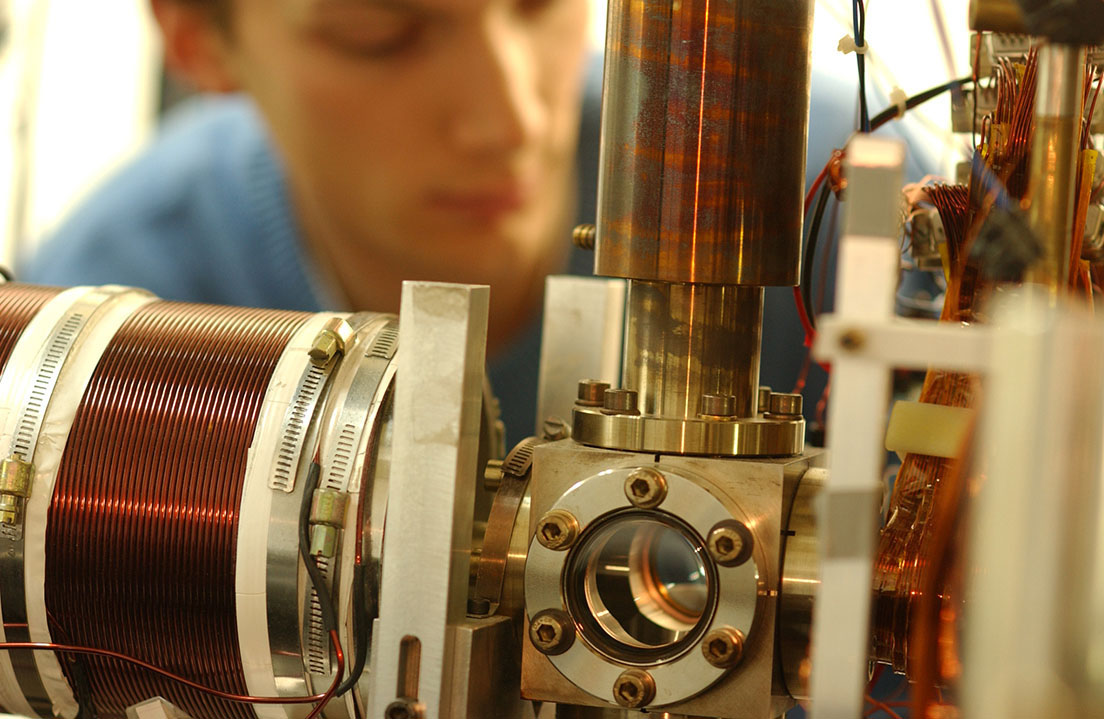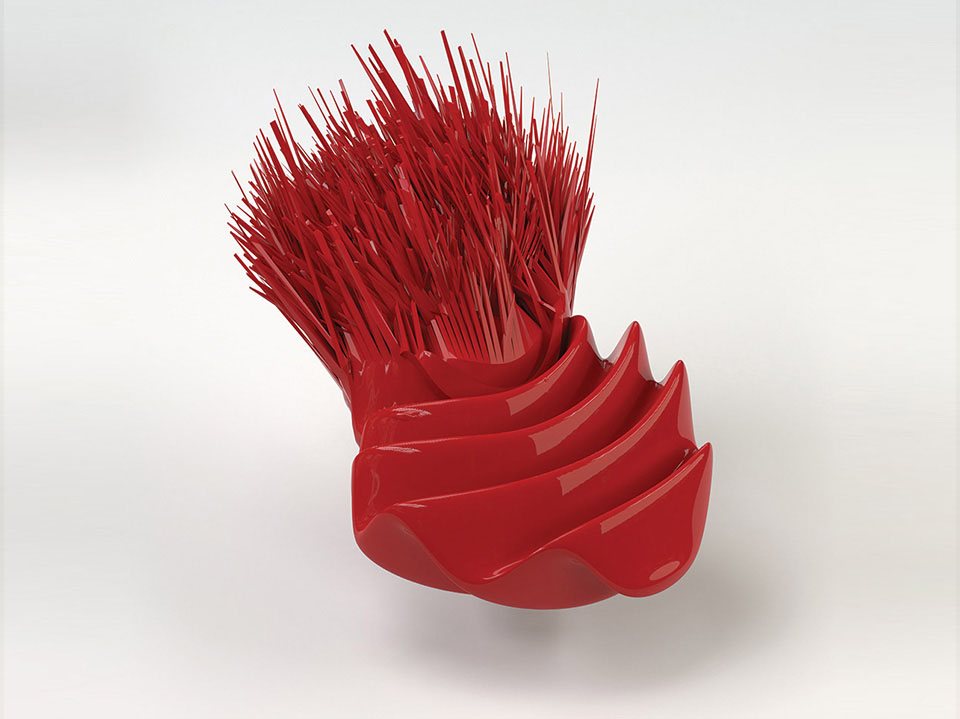Bose-Einstein condensate
Some gases, when cooled to ultra-low temperatures, collectively achieve a new quantum state, the Bose-Einstein condensate.
Physicists are able to cool some gases down to less than one-millionth of a degree above absolute zero by stopping their atoms with lasers and magnetic fields. These atoms then all achieve a collective quantum state, similar to a huge quantum wave, called the Bose-Einstein condensate. Condensates are very helpful quantum simulators: we use them to recreate more complex situations that we yet fail to fully understand in quantum mechanics, such as superconductors or other properties of a solid.

In laboratory
Bose-Einstein condensates are created in quantum optics and atomic physics labs. Not only are they used to reproduce complex situations in solids, but also to study some fundamental quantum properties. They may even be used to manipulate, slow down or stop light. An equivalent of condensates, such as superfluid helium or certain magnetic materials when put in high magnetic fields can also be created in other systems.

